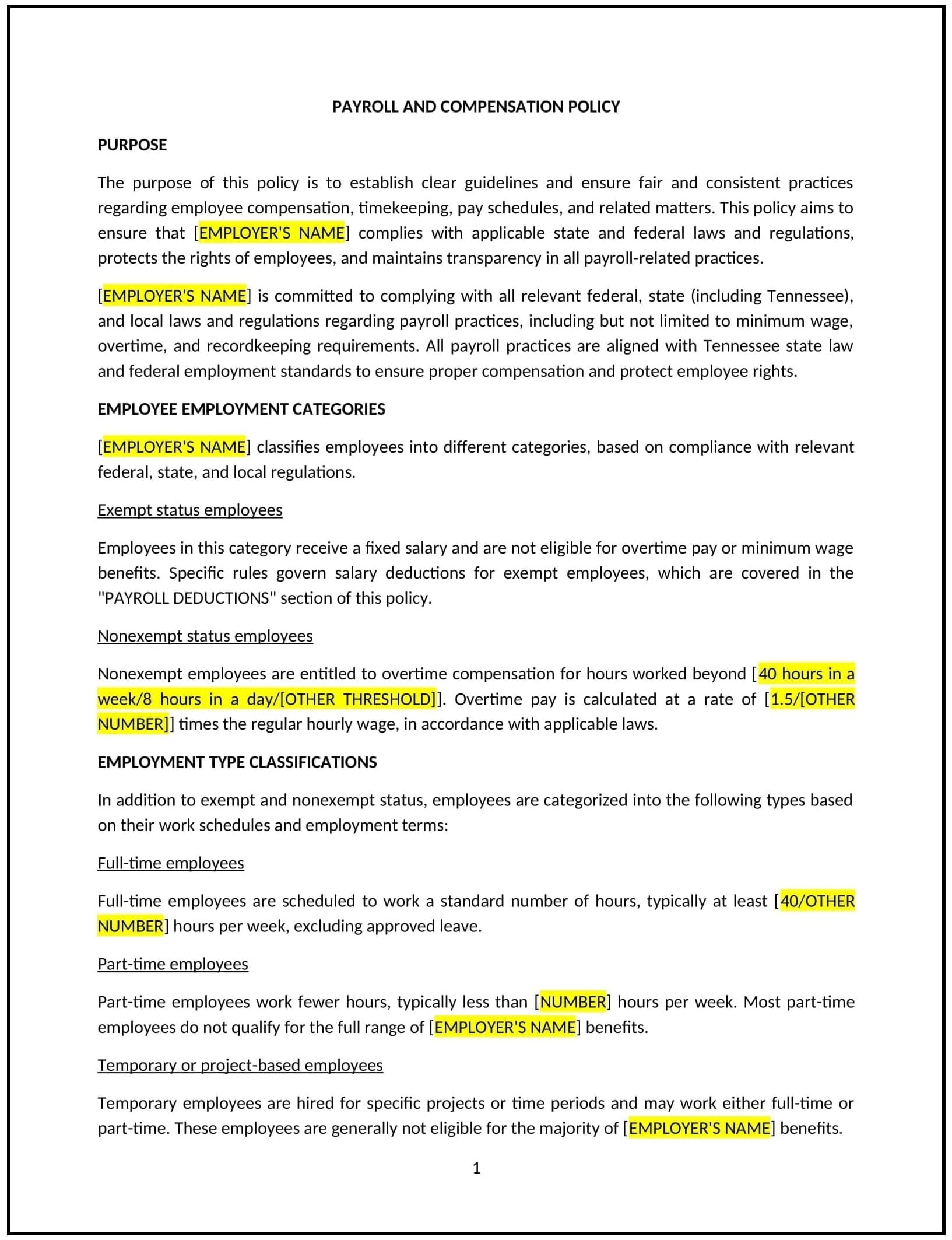Payroll and compensation policy (Tennessee): Free template
Got contracts to review? While you're here for policies, let Cobrief make contract review effortless—start your free review now.

Customize this template for free
Payroll and compensation policy (Tennessee)
This payroll and compensation policy is designed to help Tennessee businesses establish guidelines for managing employee pay, benefits, and deductions. It outlines procedures for ensuring accurate and timely payroll processing and compliance with state and federal laws.
By adopting this policy, businesses can maintain transparency, reduce payroll errors, and align with legal requirements.
How to use this payroll and compensation policy (Tennessee)
- Define pay periods: Specify how often employees will be paid, such as biweekly or monthly.
- Set compensation structure: Outline how employee pay is determined, such as hourly wages, salaries, or commissions.
- Address deductions: Explain mandatory and voluntary deductions, such as taxes, benefits, or retirement contributions.
- Train payroll staff: Educate HR and payroll teams on accurate payroll processing and compliance.
- Review and update: Assess the policy annually to ensure it aligns with evolving business needs and legal requirements.
Benefits of using this payroll and compensation policy (Tennessee)
This policy offers several advantages for Tennessee businesses:
- Ensures accuracy: Reduces payroll errors and ensures employees are paid correctly and on time.
- Maintains compliance: Helps businesses comply with state and federal payroll laws, such as wage and hour regulations.
- Enhances transparency: Provides clear guidelines for employees regarding pay and deductions.
- Builds trust: Demonstrates a commitment to fair and accurate payroll practices.
- Aligns with best practices: Supports a structured approach to payroll and compensation management.
Tips for using this payroll and compensation policy (Tennessee)
- Communicate the policy: Share the policy with employees and include it in the employee handbook.
- Provide training: Educate payroll staff on accurate payroll processing and compliance.
- Monitor compliance: Regularly review payroll records and processes to ensure adherence.
- Address issues promptly: Take corrective action if payroll errors or compliance issues arise.
- Update regularly: Assess the policy annually to ensure it aligns with evolving business needs.